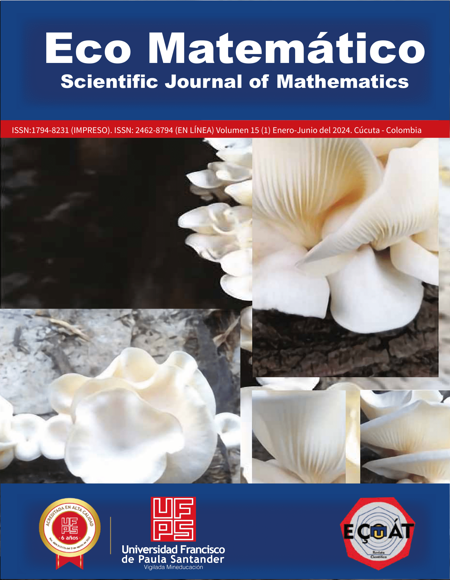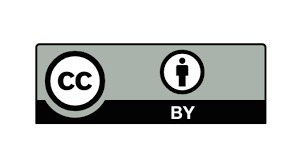Preparación Tecnológica, Adaptación a la Enseñanza Remota y Uso de TIC en la Postpandemia: Un Modelo de Regresión Logística para Docentes Colombianos
Technological Readiness, Adaptation to Remote Teaching and ICT Use in the Post-Pandemic: A Logistic Regression Model for Colombian Teachers
Contenido principal del artículo
La pandemia de COVID-19 ha acelerado la integración de las TIC en la educación, obligando a los docentes a adaptarse rápidamente a la enseñanza remota. Este estudio investiga las percepciones de los docentes sobre la crisis educativa vivida durante la pandemia y los desafíos en la etapa postpandemia. Se utilizó un enfoque cuantitativo mediante encuestas estructuradas aplicadas a 534 docentes en Colombia, examina la adaptación a la enseñanza remota, la preparación tecnológica y el uso de TIC en la postpandemia. Mediante análisis estadísticos como pruebas de chi-cuadrado y regresión logística, se evidenció una alta capacidad de adaptación y una mayor valoración de las TIC, aunque persisten desafíos en el acceso a recursos y formación. Los docentes mejor preparados tecnológicamente se adaptaron mejor y continúan utilizando las TIC. La pandemia ha fomentado la colaboración y la reflexión sobre prácticas educativas innovadoras. Se recomienda fortalecer la formación continua en competencias digitales, mejorar la infraestructura tecnológica y promover modelos educativos híbridos para maximizar el potencial de las TIC en la educación postpandemia.
Descargas
Datos de publicación
Perfil evaluadores/as N/D
Declaraciones de autoría
Indexado en
- Sociedad académica
- Universidad Francisco de Paula Santander
- Editorial
- Universidad Francisco de Paula Santander
Detalles del artículo
Banco de la República. (2022). Efecto de la pandemia sobre el sistema educativo colombiano. https://www.banrep.gov.co/es/blog/efecto-pandemia-sobre-sistema-educativo-colombiano
Bao, W. (2020). COVID-19 and online teaching in higher education: A case study of Peking University. Human Behavior and Emerging Technologies, 2(2), 113-115. https://doi.org/10.1002/hbe2.191 DOI: https://doi.org/10.1002/hbe2.191
Bryman, A. (2016). Social Research Methods. Oxford University Press.
Creswell, J. W. (2014). Research Design. Qualitative, quantitative and mixed methods approaches (4th ed.). Sage Publications.
Darling-Hammond, L., Hyler, M. E., & Gardner, M. (2017). Effective teacher professional development. Learning Policy Institute. DOI: https://doi.org/10.54300/122.311
Darling-Hammond, L., Hyler, M. E., & Gardner, M. (2020). Effective teacher professional development. Learning Policy Institute.
DeVellis, R. F. (2016). Scale development: Theory and applications (4th ed.). Sage Publications.
Di Pietro, G., Biagi, F., Costa, P., Karpiński, Z., & Mazza, J. (2020). The likely impact of COVID-19 on education: Reflections based on the existing literature and recent international datasets. JRC Technical Reports. https://doi.org/10.2760/126686
Ertmer, P. A., & Ottenbreit-Leftwich, A. (2010). Teacher technology change: How knowledge, confidence, beliefs, and culture intersect. Journal of Research on Technology in Education, 42(3), 255-284. DOI: https://doi.org/10.1080/15391523.2010.10782551
Fernández-Batanero, J. M., Román-Graván, P., Reyes-Rebollo, M. M., & Montenegro-Rueda, M. (2021). Impact of educational technology on teacher stress and anxiety: A literature review. Educational Technology & Society, 24(1), 124-135.
Field, A. P. (2018) Discovering Statistics Using IBM SPSS Statistics (5th ed.). Sage.
Hodges, C., Moore, S., Lockee, B., Trust, T., & Bond, A. (2020). The difference between emergency remote teaching and online learning. Educause Review. https://er.educause.edu/articles/2020/3/the-difference-between-emergency-remote-teaching-and-online-learning
International Society for Technology in Education. (2020). Educators are key to digital learning success. International Society for Technology in Education. https://www.iste.org/
König, J., Jäger-Biela, D. J., & Glutsch, N. (2020). Adapting to online teaching during COVID-19 school closure: Teacher education and teacher competence effects among early career teachers in Germany. European Journal of Teacher Education, 43(4), 608-622. https://doi.org/10.1080/02619768.2020.1809650 DOI: https://doi.org/10.1080/02619768.2020.1809650
Ministerio de Educación Nacional. (2020). Virtualidad y alternancia: El 2020, año de retos y oportunidades para la educación. https://www.mineducacion.gov.co/1780/articles-402486_recurso_1.pdf
Ministerio de Educación Nacional. (2022a). Evaluar para avanzar. ICFES-Mineducación. https://www.mineducacion.gov.co/1780/articles-363488_recurso_11.pdf
Ministerio de Educación Nacional. (2022b, 10 de noviembre). Las pérdidas de aprendizaje por la pandemia nos han llevado a la peor crisis de la educación en dos generaciones. https://www.mineducacion.gov.co/portal/salaprensa/Comunicados/412942:Las-perdidas-de-aprendizaje-por-la-pandemia-nos-han-llevado-a-la-peor-crisis-de-la-educacion-en-dos-generaciones-Mineducacion-en-Foro-Educativo-Nacional-2022
Mishra, L., Gupta, T., & Shree, A. (2020). Online teaching-learning in higher education during lockdown period of COVID-19 pandemic. International Journal of Educational Research Open, 1, 100012. https://doi.org/10.1016/j.ijedro.2020.100012 DOI: https://doi.org/10.1016/j.ijedro.2020.100012
Mishra, P., & Koehler, M. J. (2006). Technological pedagogical content knowledge: A framework for teacher knowledge. Teachers College Record, 108(6), 1017-1054. DOI: https://doi.org/10.1177/016146810610800610
Organización de Estados Iberoamericanos. (2021). Retorno escolar presencial pospandemia en Iberoamérica: Avances, reflexiones y recomendaciones. OEI. https://oei.int/downloads/blobs/eyJfcmFpbHMiOnsibWVzc2FnZSI6IkJBaHBBclV3IiwiZXhwIjpudWxsLCJwdXIiOiJibG9iX2lkIn19--4a954fdfd0a9e090c0b7e602c09249bf9d4fa4e5/Informe%20Retorno%20clases%20IB%20-%20general.pdf
Organización para la Cooperación y el Desarrollo Económico. (2020a). Education and COVID-19: Focusing on the long-term impact of school closures. OECD Publishing. https://www.oecd.org/coronavirus/policy-responses/education-and-covid-19-focusing-on-the-long-term-impact-of-school-closures-2cea926e/
Organización para la Cooperación y el Desarrollo Económico. (2020b). The impact of COVID-19 on education: Insights from education at a glance 2020. https://www.oecd.org/education/the-impact-of-covid-19-on-education-insights-education-at-a-glance-2020.pdf
Organización de las Naciones Unidas para la Educación, la Ciencia y la Cultura. (2020). Education: From COVID-19 school closures to recovery. https://en.unesco.org/covid19/educationresponse
Pallant, J. (2020). SPSS Survival Manual: A Step by Step Guide to Data Analysis Using IBM SPSS. McGraw-Hill, Open University Press. https://doi.org/10.4324/9781003117452 DOI: https://doi.org/10.4324/9781003117452
Redecker, C. (2017). European framework for the digital competence of educators: DigCompEdu. European Union. https://doi.org/10.2760/159770
Reimers, F. M., & Schleicher, A. (2020). A framework to guide an education response to the COVID-19 Pandemic of 2020. OECD.
Schleicher, A. (2020). The impact of COVID-19 on education: Insights from education at a glance 2020. OECD.
Tavakol, M., & Dennick, R. (2011). Making sense of Cronbach's alpha. International Journal of Medical Education, 2, 53-55. https://doi.org/10.5116/ijme.4dfb.8dfd DOI: https://doi.org/10.5116/ijme.4dfb.8dfd
Trust, T., & Whalen, J. (2020). Should teachers be trained in emergency remote teaching? Lessons learned from the COVID-19 pandemic. Journal of Technology and Teacher Education, 28(2), 189-199.
Vincent-Lancrin, S., & Van Der Vlies, R. (2020). Trustworthy artificial intelligence (AI) in education: Promises and challenges. OECD Education Working Papers, (218). https://www.oecd-ilibrary.org/education/trustworthy-artificial-intelligence-ai-in-education_a6c90fa9-en
Zhang, W., Wang, Y., Yang, L., & Wang, C. (2020). Suspending classes without stopping learning: China's education emergency management policy in the COVID-19 outbreak. Journal of Risk and Financial Management, 13(3), 55. https://doi.org/10.3390/jrfm13030055 DOI: https://doi.org/10.3390/jrfm13030055








